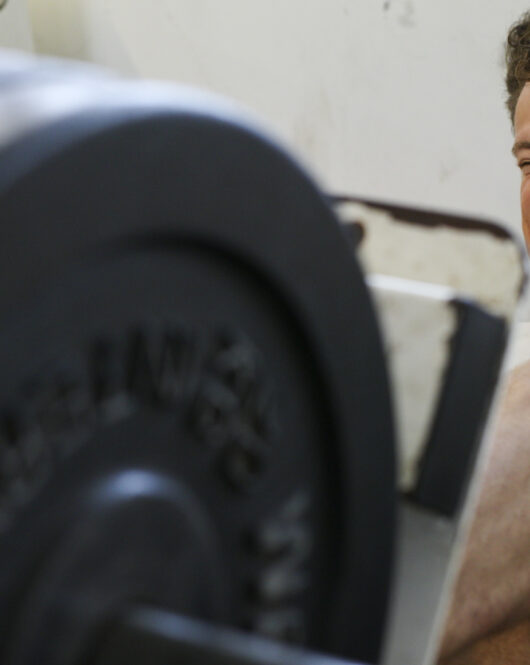Coaches have a pivotal role to play in the lives of athletes, at all levels. It is vital they appreciate the position they hold and are able to manage themselves as well as their athletes.
Just using a gut feel is no longer a viable way of operating. The time has come for coaches to tool themselves up for the digital coaching age.
‘Behind every winning sports team is a great coach’. That’s a phrase I often use when opening coach education sessions. Of course every winning team also has great athletes but if a good coach leaves then it is common for the team to see a downturn in performance even if the athletic talent is still intact. The famous and well-renowned coaches like Jurgen Grobler in British Rowing, Sir Alex Ferguson in Soccer and Warren Gatland in Rugby fully understand their significance as coaches because success has followed them over long careers with many different athletes and we have all seen it. But coaches at lower levels, professional or amateur, and even entry-level unpaid coaches also need to understand the considerable influence they wield. Coaching is about leadership because it is assumed you have the knowledge to teach others and the personality to inspire, mobilise and facilitate performance in people, so even if you are short on experience as a coach you still have influence as a person. Well-considered encouragement to a young sportsperson just might awaken a sporting dream and change their life forever, and equally well an ill-tempered retort might snuff it out.
Leaders need credibility if they expect people to follow them and the famous coaches have the advantage over the younger ones because they have a far larger data-bank of information to call on. They have records of miles of training done, intensities, weights lifted, tactics employed and have witnessed more Olympics, World Cups, and tournaments than others. Others can observe and copy their analysis but they created it in the first place and importantly they know the mistakes they made. “You don’t lose, you either Win or you Learn” – a quote attributed to Nelson Mandela and others! Over time they gain more and more data and many of the top coaches stay there a long time. It’s a virtuous circle; the more they win the more they know why they won and can repeat it again.
Responsibilities of a Coach
Some aspects of coaching are quite broad, just like being a parent or teacher. You need to set the tone on a daily basis, to be seen to be fair, consistent, and reliable. Coaches are like mirrors – if we are grumpy, late, poorly planned, inconsistent, biased, low energy, then our athletes tend to reflect that straight back at us, especially the younger ones who know no different. The environment is key, not just the physical buildings and facilities but the cultural environment too. Why do the All Blacks play in black, Usain Bolt drape a Jamaican flag round his shoulders, eyes well up when a national anthem is played? It’s symbolism: anyone lining up opposite the All Blacks knows they have to be good, very good to earn that jersey and they will be mighty opposition. It becomes like a suit of armour. In my days as Head Coach with Cambridge University Boat Club we were proud of our light blue colours. Oxford dark blue – the enemy. Ready in 180 days for the annual University Boat Race, no heats, or second chances, no silver medal, just first or last; the result imprinted on you for the rest of your life and done in front of several hundred thousand people. Kit is earned over time by those most deserving and that is where performance analysis comes in. The coach needs to make decisions to get to this point; talent ID, training, assessing, evaluating, testing, selecting, competing, winning. He needs information, data, and the ability to manage it to get the right information from it, without which there’s no hope of creating success.
Common challenges faced by a coach
An absolute first step for coaches is to understand themselves and what is their coaching persona. Dr Steve Peters, Psychologist to British Cycling and author of ‘The Chimp Paradox’ states that you need to understand yourself before you can hope to understand and help others. Brian Clough the football manager was once asked whether he ever consulted with his players “We talk about it for 20 minutes and then we decide I was right”! If nothing else that constitutes clear leadership but in most situations it pays to appreciate that people are different and the coach stands to unlock more talent by being perceptive of this. Owen Slot looks into this aspect in ‘The Talent Lab’, a book he wrote in cooperation with UK Sport after the 2016 Olympics. A few years out from the Games the British Swimming and Hockey teams were performing below their aspirations and he explains how the analysis of performance data allowed staff to narrow down reasons for under-performance. Once understood they realised the training programmes were fine but put in strategies for change which centred largely on the coaching styles. In other words the factual information led to a change in some quite soft skill areas, and medal success followed.
They say athletes can be ‘radiators’ or ‘drains’, that is they can give energy and support to others or they can suck it away and that is no doubt true of coaches too. Athletes are the ones who do the performance, win the game and do the hard work but the coach is right there next closest and acts as the glue holding together the athletes, nutritionists, physiotherapists, bio-mechanics, strength and conditioning coaches, medics, backroom admin, logisitics, equipment managers, and the wide team of support that underpin the athlete. In 2016 we went through a sports psychology session with the GB Rowing Team rowers and used an ‘Insights’ exercise with them. Like Myers Briggs personality profiling, it allowed us to understand how and why peoples’ personalities are different, how we learn differently, hear things with different meanings, react to situations, pressure and racing differently and even have different priorities despite being tasked on the same goal (Olympic success). There’s huge scope for confusion! The coaching intervention helped create more ‘emotional intelligence’ and positively saved one boat which was on a plateau, and helped them get their medal.
How coaches inspire a team
This science of the mind algorithm was produced through years of academic study and data collection rooted historically in the work of Carl Jung, acknowledged as the founding force of analytical psychology. There are challenges for coaches which they cannot control like the weather, the opposition, or a world-wide pandemic! But a good coach can cope better and teaching coping skills to athletes is an important role. Matthew Pinsent’s biography says “we [Steve Redgrave and Matthew] didn’t train to win, we trained not to lose” and that is a solid philosophy indeed. At the Lagoa regatta course in Rio in 2016 the atrocious weather caused one of the rowing lanes to snap and racing was postponed, but Helen Glover and Heather Stanning in the Women’s’ Pair were set to race. They didn’t need to break a record to win, just cope better than their opposition, and the next day they did. That was born out of years of data-gathering; how a cross wind affects things, water temperature, skills in rough water, tail wind speeds. British Sailing who had a meteorology station set up not far away for their sailors collaborated with the rowing team daily with highly accurate information about forecasts to help us manage strategies and expectations. Data creates confidence and security, and advance information equips us to perform better.
Looking ahead
The obvious use of data for coaches is literally in the gathering of numbers and statistics. The human body is essentially the same as it was a century ago but we can squeeze much more performance out of it nowadays. We set tough training and measure speeds, blood lactates, heart rates, bio-mechanics, conditions. On the pitch we know who has made the most tackles, metres, kicks, passes, off-loads, support runs, and how much territory has been gained or lost. It’s all about stats and the public sit on their sofas with the analysis being handed to them via the TV, live. In Australian Rowing amongst others, collection of data has allowed them to plan recovery too and minimise illness and injury. An article recently published by British Rowing for its online community talks about wearable technology such as calorie-counting pulse watches, GPS devices, and smart watches – technology within the reach of everyone these days and potentially giving the athlete better awareness of his body and training state. Strava is inadvertently creating a world-wide data base about the fastest makes of bike just because so many people log their training centrally. At the cutting edge ‘wearable’ technology means exactly that because companies like Asensei have been developing garments with sensors built in which can track movement- kinetic capture – and even give you virtual coaching feedback as you move. Online coaching with Peloton cycling is now global and Hydrow indoor rowing in the USA are attempting to capture some of the 4 million gym rowers in the country with live streaming rowing sessions. This data helps them track user needs and they can evolve their product development accordingly and make better business decisions. So information and data is more available than ever, data analysis more informative than before and the crucial step is having a suitable platform for data management to mine that data. Not that the real life coach is likely to be out of a job – the human eye, intuition, and experience and communication is still key, but it’s all about condensing the learnings and passing it down the line efficiently to others in your team so everyone can benefit and stay ahead of the curve.
View more content like this

What strength quality does your rower/crew need to improve their speed?
How can strength & conditioning emphasize different strength qualities to improve performance? This article provides a framework and recommendations for the coach and rower to address
Richard Spratley, The Mastermind behind the Oxford Brookes Rowing Empire, chats in Crossy's Corner
How can strength & conditioning emphasize different strength qualities to improve performance? This article provides a framework and recommendations for the coach and rower to address
Ludum Coaching App Can Help Manage Your Club
Running and organising a rowing club is a complex movable feast that seems to require the use of many platforms and technologies in order to





